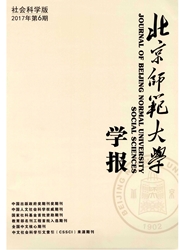

 中文摘要:
中文摘要:
中国经济发展所带来的环境污染问题十分严峻,世界上20个污染最严重的城市有16个位于中国,客观评价中国环境污染水平,促进中国经济又好又快发展,是十分必要的。在测度1999—2009年我国各地区环境污染指数的基础上,建立了一个环境污染程度模型,考察贸易开放、FDI、政府规制、产业结构、资本深化、路径依赖等因素对环境污染的影响。回归分析表明,FDI、经济发展水平、环境污染路径依赖与我国的环境污染水平显著正相关;第三产业比重与我国大多数地区环境污染水平显著负相关;资本深化与我国大多数地区环境污染水平显著正相关;贸易开放虽然提高了我国东部地区的环境质量,却加重了中西部地区的环境污染;环境规制对提高环境质量并没有十分显著的作用;技术进步有效地促进了我国东中部环境质量的提升,但对于西部地区环境的改善则相对乏力。因此,为了促进中国经济可持续发展,中国需要提高外资准入的环境门槛,优化产业结构,实施绿色贸易战略,健全环境规制体系。
 英文摘要:
英文摘要:
In China environmental pollution brought by economic development is so severe that 16 of 20 most polluted cities on the earth are here in mainland. It is of great essence and need to evaluate China's environment pollution level objectively to promote China's economic development sound and fast. This paper is based on the measurement of pollution index in China from 1999 to 2009, aiming at setting up an environment pollution model to explore the effects of trade openness, FDI, government rules, industry structure, capital deepening, and paths dependence on pollution index. Regression analysis indicates that FDI, economy development level, and pollution paths dependence have obvious positive impact on pollution index, that the tertiary industry proportion has obvious negative impact on pollution index in most of regions, and that capital deepening has obvious positive impact on pollution index in most regions. Though trade openness improves the east-region environmental quality and aggravates the middle-west environment pollution, environment rules have little obvious positive impact on environmental quality. However, technology progress has obvious positive impact on environmental quality in the middle east, but has little positive impact on the environmental quality in the west region. In order to promote the economy sustainable development, China should therefore increase foreign investment access environment threshold, optimize the construction of industry, implement green trade strategy, and perfect the environment systems.
 同期刊论文项目
同期刊论文项目
 同项目期刊论文
同项目期刊论文
 期刊信息
期刊信息
